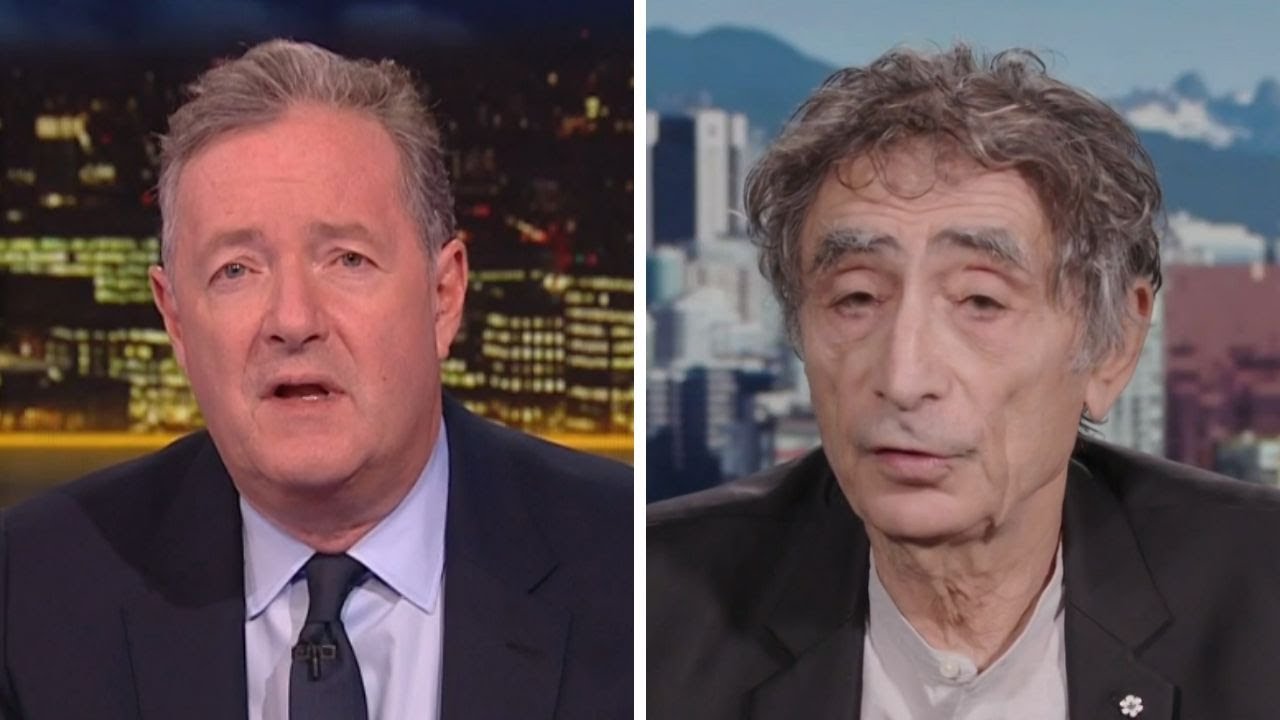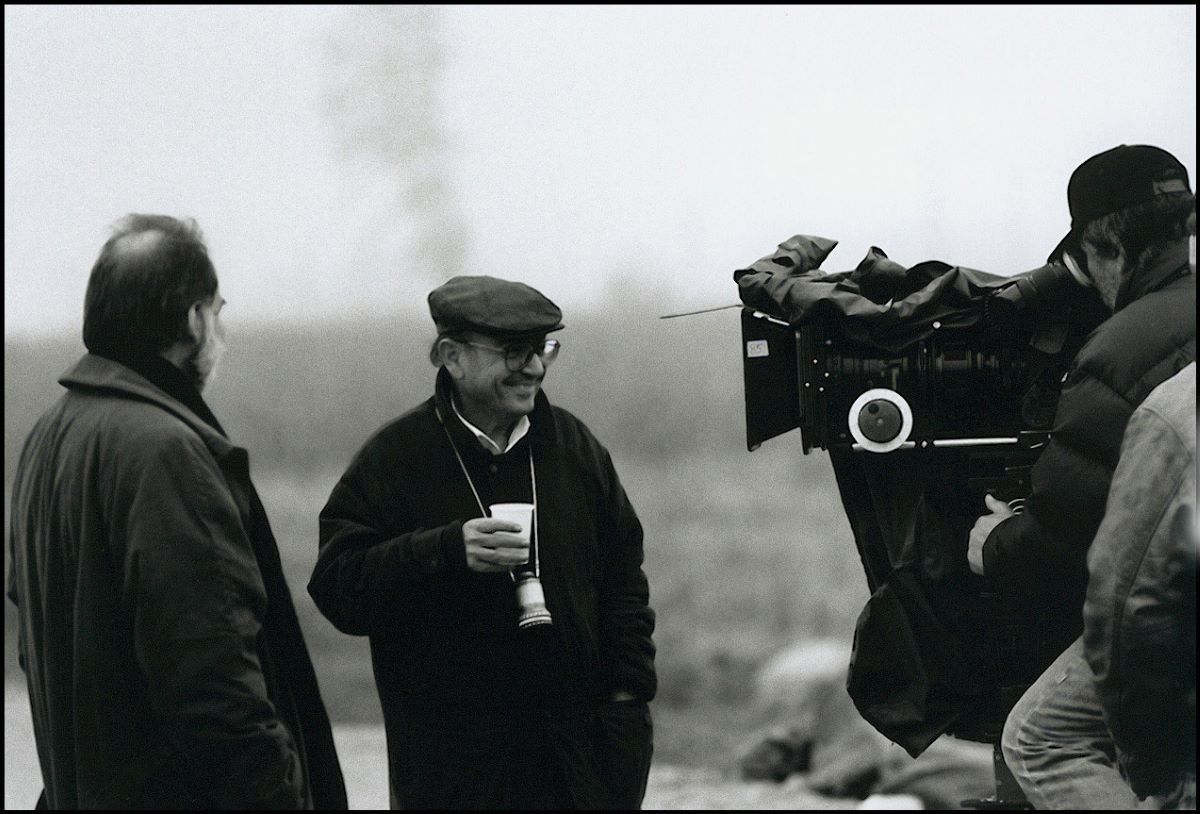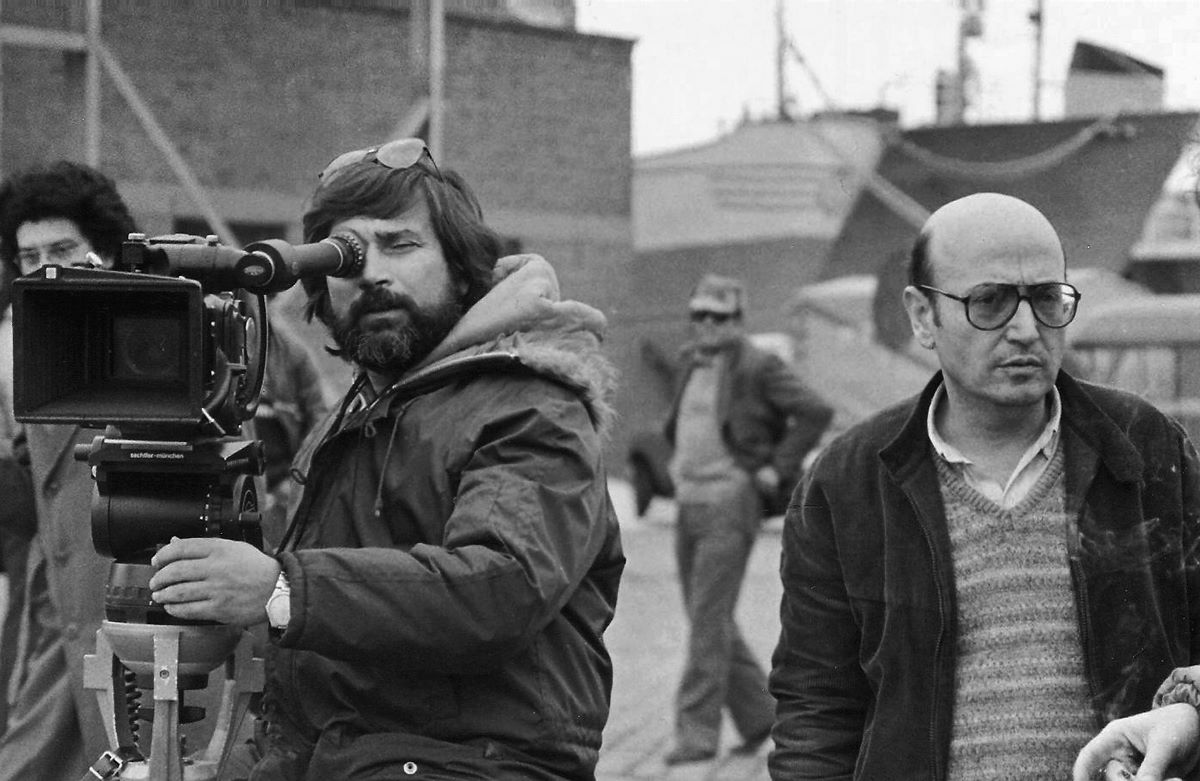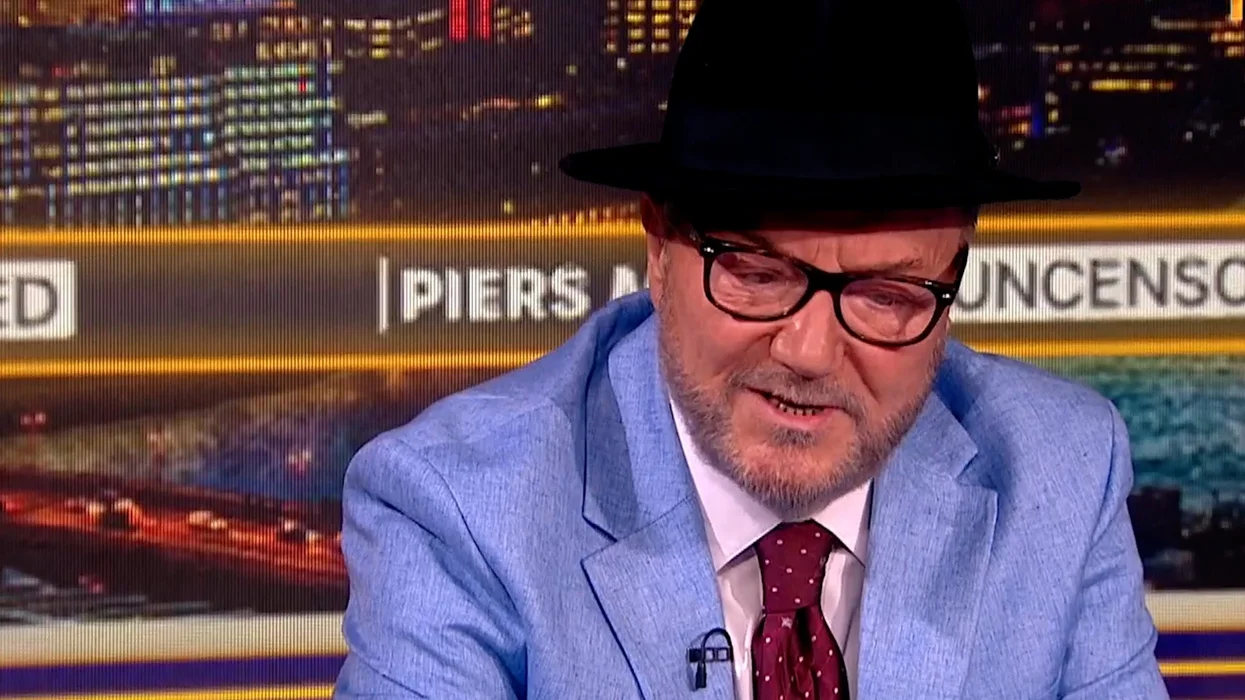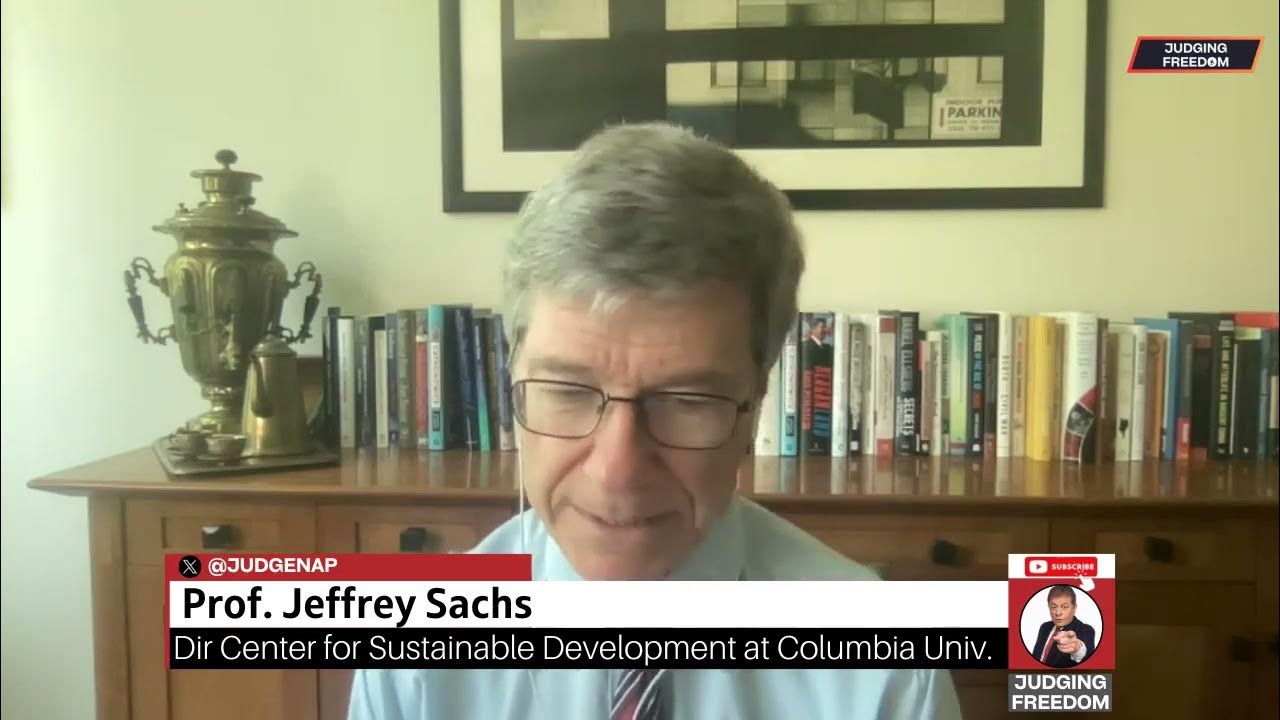Channel: Piers Morgan Uncensored
Publish date: November 29, 2023
Length: 20 minutes, and 10 seconds
Description: Piers Morgan Uncensored is joined by physician, author and trauma expert Dr. Gabor Maté to discuss the ongoing dispute and conflict in Gaza between Israel, Hamas and Palestine. They also have an open discussion about why former Zionist Gabor now supports the people of Palestine in this historical conflict even whilst having Jewish family and being a holocaust survivor, what the future of this conflict looks like and how we can achieve a peaceful resolution.
The pair also go on to discuss Gabor’s interview with Prince Harry about trauma and why he regrets conducting the interview with the Duke of Sussex.
Read more transcripts of Piers Morgan Uncensored here
* * *
PIERS MORGAN: Welcome back to Uncensored with Dr. Gabor Maté! Dr. Gabor Maté made global headlines earlier this year when he appeared in an interview with Prince Harry. The renowned trauma expert spoke with the Duke of Sussex about the importance of healing in an interview to promote Harry’s memoir. More recently, Dr. Maté has been winning plaudits for his take on the Israel-Hamas War. As an infant survivor of the Holocaust, he has been outspoken about both the atrocities of October 7th and Israel’s response. Dr. Gabor Maté joins me now. Dr. Maté, thank you very much indeed for joining me, and thank you for your patience. I know you’ve been sitting there listening to the interview I just conducted with this poor woman, whose parents were both kidnapped—one has been returned, one hasn’t yet. First of all, what was your response to that interview?
GABOR MATÉ: On the human level, I saw a very decent person in evident pain and grief, obviously deep anxiety about the fate of her father. I saw somebody trying to make the best out of a really horrific situation, and my heart goes out to her.
PIERS: You’ve specialized throughout your career in trauma and helping people get through trauma. You’ve talked to many people who’ve been in extreme trauma. This is a very traumatic situation these last two months for people on both sides—for the people who were on the receiving end of this massacre on October 7th, and we’ve just heard firsthand what that has been like for the people in Israel who suffered that. But also, of course, what’s going on now in Gaza with many thousands of innocent people being killed, with Israel’s military response, including thousands of children. What is your overall assessment of where this war is now heading?
GABOR: For that, you need some historical context. I used to be a Zionist, as you mentioned. I’m a Holocaust survivor. Zionism was very important for me as the salvation of the Jewish people until I found out that the state was founded based on the extirpation, expulsion, and multiple massacres of the local population. And that’s not historically controversial. So, I’m taking a long review of this, and I’m saying that the present situation cannot be understood without looking at the historical context. Nor can we move forward if the present occupation and the suppression of the Palestinians continue. Sharon, your previous guest talked about the fragile coexistence. There was no coexistence; there was oppression, periodic massacres, land occupation in the West Bank—the continuous expulsion of the population from their homes. I visited the occupied territories three times now. The first time, back during the first Intifada, I cried every day for two weeks at what I saw. So, this cannot go on. I saw the news about the Elgin Marbles being returned and how you changed your mind about that. Well, how about returning the land that’s been stolen from the Palestinians? I’m not talking about the state of Israel; I’m not talking about 1948. I’m talking about since ’67 and what’s going on right now. So, there’s got to be some stop to what’s going on, and that’s how I understand it. This is for the sake of both Israelis and Palestinians.
PIERS: Yes, I completely agree with you. This is a never-ending cycle. I guess from the Israeli’s point of view, what happened on October 7th was on such a gigantic horrific scale. I do get a sense that Israel is in a collective sense of trauma and that they are determined that Hamas should not be allowed to perpetrate such a massacre again, and they are on record. Hamas, just two weeks ago, their spokesman are saying they would do it again and again and again if they can. So, that represents a clear existential threat to the security of people in Israel. So, I guess my question for you is, what should Israel’s response be? Everyone is increasingly concerned about what is going on in Gaza. Clearly, the loss of civilian life is on a catastrophic scale. Nobody thinks this is right. But at the same time, I think many would share my view that Israel has a right to defend itself. The question is how do they do that appropriately and how do they get rid of Hamas if indeed you think they should get rid of Hamas.
GABOR: Well, you’re raising many questions and many fair questions. Now look, I live in Canada where this country was founded on the suppression and the erasure of the indigenous population and the utter denial of their narrative. In Canada, for example, there were horrendous residential schools where a few decades ago, if a native child spoke their tribal language, they had a pin stuck in their tongue. Now most Canadians are not aware of that history; most Israelis are not aware of the history of what the Palestinians have suffered. They don’t know that in 1948, there were multiple massacres of large numbers of people by Israeli forces. They don’t know the history, the subjective experience of the Palestinians. In the absence of that knowledge, October 7th would just strike them as another horrific anti-Semitic event. I understand the desire for defense and certainly even a desire for revenge, but that’s in the absence of knowing what the Palestinian experience has been. The Western press, and as in all countries where the local population has been displaced, the majority of the population doesn’t know the history or the subjective experience. So, if you’re asking me how to move forward, let’s inform ourselves of the actual experience of both sides, not just one side. Just as you had this wonderful Israeli woman, Sharon, on here who spoke with such humanity and such poignancy, you might have some Palestinians on explaining their experience—what it’s like for them to live under occupation. In the absence of that conversation, there’s no moving forward, and that’s all I’m asking for.
PIERS: I’ve had a number of Palestinians, including a doctor…
GABOR: Let me say one more thing, sorry—Israel’s right to defense, yes. Israel has the right to defend itself; every country does. But Israel has no right to impose an occupation on people. Now look, I was born in Hungary in 1956; when I was 13, studying for my Bar Mitzvah, there was the great Hungarian Revolution against Soviet occupation. It was after that Revolution that we became refugees and came to Canada. Now, did Russia have the right to defend itself against the Hungarian revolutionaries? Mostly, when we talk about Israel’s right of defense, we’re taking isolated Palestinian actions. But we’re not saying that this population also has the right to defend against the occupation. I’m not justifying the terrible events of October 7th; I’m talking in the absence of historical awareness. It all just looks like Israel defending itself but against whom? Against the population that has been massacring for 80 years, taking their lands, destroying their homes, and jailing their children and torturing them. That’s the history. Now unless we know that, it all looks like this poor little country trying to defend itself, but against whom? Against people that have been occupying and displacing for 80 years. That’s the history, as Israeli historians have shown. I don’t make this stuff up; I wish it wasn’t true. I wish I could believe in the dream of the Jewish state; I love that dream, except I found out at what price, at what nightmare that imposed on the Palestinians.
PIERS: How do you see this ever getting resolved? It seems so intractable, but then, as I always say, so did the Northern Ireland conflict that seemed intractable when the IRA were committing terror atrocities. But they eventually did get to peace. Can you see a pathway here to peace, and what does it look like?
GABOR: That’s a great question again. Look, even if you’re going to have Nick Kyrgios on later, the tennis player. I just spent a couple of weeks in Serbia and the former Yugoslavia with another tennis player, Novak Djokovic. They have a foundation that promotes healing and child development, and so on. So, they asked me to speak throughout the former Yugoslavia. You know what horrific, um, um atrocities were committed there just a few decades ago. So I was in Belgrade, I was in Sarajevo, I was in Banja Luka, I was in Ljubljana. They’re living together now; there are still issues to be worked out. But the minimum condition is the ending of the occupation and the inhumane siege of Gaza. And international law has to be respected. International law is very clear that this occupation is illegal. That has to be the basis of any future agreement. If that was agreed on and if Israel could live within the borders that are internationally recognized, I believe peace is possible. Now we keep talking about the Hamas charter. Did you know that the Likud Charter, the ruling party in Israel, excludes a Palestinian entity west of the Jordan River? So let’s get rid of both charters and let’s start with the basis of recognition and peace and the ending of this unspeakably brutal occupation. For you have to go there to see it for yourself, as I have, and you would cry every day for two weeks as well.
PIERS: I’m under no illusion about what the Palestinian people have had to endure, and I think the oppression of the Palestinian people for decades has been completely shameful, and it shouldn’t have been happening. I mean, the mere fact that Israel was able after October the 7th to simply turn off the supplies of food and water and fuel and so on into Gaza says it all. That is an occupation that is a controlling force, controlling whether people eat or have fuel or can heat themselves or feed themselves. So I, you know, I’m under no illusions about that. I’d be very critical of Israel before. What has complicated things for me morally with this is that the scale of what happened on October the 7th was so disgusting, uh, and the fact that Hamas has said they will continue to try and do the same thing again is that I absolutely believe Israel has to do what it can to remove that threat. And how you do that when they are immersed in the civilian population and that population is half children, uh, without massive civilian casualties on the scale we’re now seeing, I don’t know. I genuinely don’t know. I don’t know how they resolve this. But, uh, I hope the better minds than mine can work a way through this.
GABOR: Well, I hope along with you as well. But again, I’m saying that there’s no possibility of that until the International Community, and particularly Israel’s big brothers UK and the US stop supporting its illegal, brutal, inhumane, and rapacious occupation. It can’t happen without some pressure. Um, and again, most Israelis are simply not aware. I’ve been to Israel, talked to people; they have no idea what’s happening a few miles away from when they’re sitting in Tel Aviv having coffee, and they have no idea or in Jerusalem, and they have no idea what’s happening a few miles away, how those people under occupation are living. And this has been done; it’s not that they’re not capable of being aware, but like most people, they’re just not. And I’m saying that unless we fully get the Palestinian experience historically and throughout the decades and into the present moment, we can’t possibly understand what’s going on here. Now, in 2005, there was a study that appeared in the Journal of World Psychiatry looking at traumatized populations under war conditions. The most traumatized children in 2005, this is before Hamas gained power in Palestine and in Gaza. The most traumatized kids were in Gaza. This population has been traumatized severely. Of course, they’re full of rage. I’m not justifying anything they did, but I’m saying, what do we expect from this population that’s been suppressed and tormented and crucified for decades?
PIERS: Dr. Maté, I want to talk to you about something else now, which made you globally brought to the world’s attention early this year when you sat down with Prince Harry to talk about his book ‘Spare.’ And it got a lot of attention this. I just wondered, you’ve expressed since then regret really that you ever did it. Why do you feel that way?
GABOR: I expressed regret not about the having done the interview but the way I agreed that it would be conducted. What I mean by that is I had a strong sense that this interview should be free for everybody; it should be a service to the public. It was a great discussion. I really enjoyed meeting Harry; I found him to be humble and sincere and genuinely interested in promoting mental health and looking at the trauma that underlies people’s mental health issues. What was wrong with it is that it was put behind a paywall. So a lot of people had to buy his book in order to watch the interview. A lot of four million people already had; they were excluded from watching the interview, and so that’s what I regretted. I did not regret doing the interview; I enjoyed it, and I thought it was a really good discussion between two flawed people who were willing to look at their flaws. So, I’m glad I did it. But in that respect, I would not agree to it unless it was aired freely for the whole world to see. Harry felt the same way, by the way; afterwards, we both wanted it released. But the lawyer said that since it was marketed as a pay-for-viewing one-time event, we would be slapped with a class-action suit if we released it. So unfortunately, a lot of people didn’t see it; those who did, for the most part, expressed a lot of appreciation.
PIERS: Let me play a clip from the interview you conducted; I’ll come back to you after this.
GABOR: And then at some point, you say towards the end of the book, ‘When is someone in his family going to break free and live? Have you done that?’
HARRY: I have now.
GABOR: Yeah, um, what does it feel like?
HARRY: Feels great. I do. I… You once the book came out, I felt… I felt incredibly free. I felt a huge weight off my shoulders.
PIERS: Now we have very different views about Prince Harry; I’ll lay my cards on the table. I think he’s behaved disgracefully towards his family, particularly when Prince Philip was dying, then the queen was dying, the family was in grief, and all he and his wife Megan seemed to have done to me is chew up flames at the family from abroad and try to damage them and the institution of the monarchy. But it’s interesting that he believed there—and I recognize you feel differently—he believed there that he’s found freedom. But in all your experience of talking to people through, you know, similar kind of family trauma, if you like, can you really find happiness if your freedom involves disconnecting yourself from your entire family?
GABOR: Well, it’s a really good question. My eldest son and I, Daniel, with whom I wrote our book The Myth of Normal: Trauma, Illness, and Healing in a Toxic Culture, are writing a new book now. It’s called Hello Again: A Fresh Start for Parents and Their Adult Children. Families are tough; families hurt each other; children are traumatized in families. Harry was traumatized in his family not because his parents didn’t love him but because they were carrying their own trauma and passed it on to the next generation. I passed on my trauma to my children; I didn’t mean to, but I did. And so sometimes people can work these things out if there’s the willingness on both sides, and people do make mistakes. I do believe Harry made some mistakes; that goes both ways; people can work it out, and sometimes they can’t, and sometimes people find freedom in having to disconnect. In the book The Myth of Normal, I talk about this tension that we all have between authentic belonging and authenticity. If we can belong and connect and be our true selves, that’s ideal. But what do we do if, in order to be our true selves, our families or our communities won’t accept us? Well, for example, over this Israel issue, I made a decision a long time ago that for me, speaking the truth, which doesn’t make me right, but speaking my truth is more important than who likes me and who doesn’t like me. In 1967, I wrote an article after the war, arguing by that time that Israel had occupied these territories quite deliberately and then never gave them back. My father kicked me out of the house; I accepted that. Now, my father later on came around and actually agreed with me. But I made a decision that to be myself and to speak my truth, I’m willing to break the contact if that’s what it took. A lot of people in that situation, and Harry, in that family with a very troubled young mother and a loveless marriage and a father who was having an affair before he was born, a family that was not a whole lot of teaching and holding, there are multiple reasons to say that he was a very traumatized child, and in order to become himself, he had to distance himself. Now, did he do it right, exactly the ideal way? Maybe not, but you know what, when I look at myself at age 38 or 35, boy did I make a lot of mistakes. So, this is all part of the human drama, and families sometimes work it out, and sometimes they don’t.
PIERS: It’s true. It’s very true. Dr. Maté, I’ve got to leave it there; it’s been fascinating. Please come back on the show again another time; I’ve really enjoyed talking to you.
GABOR: Likewise, I really appreciate you giving me this, uh, this listening. Thank you.
PIERS: A pleasure. Thank you very much.

